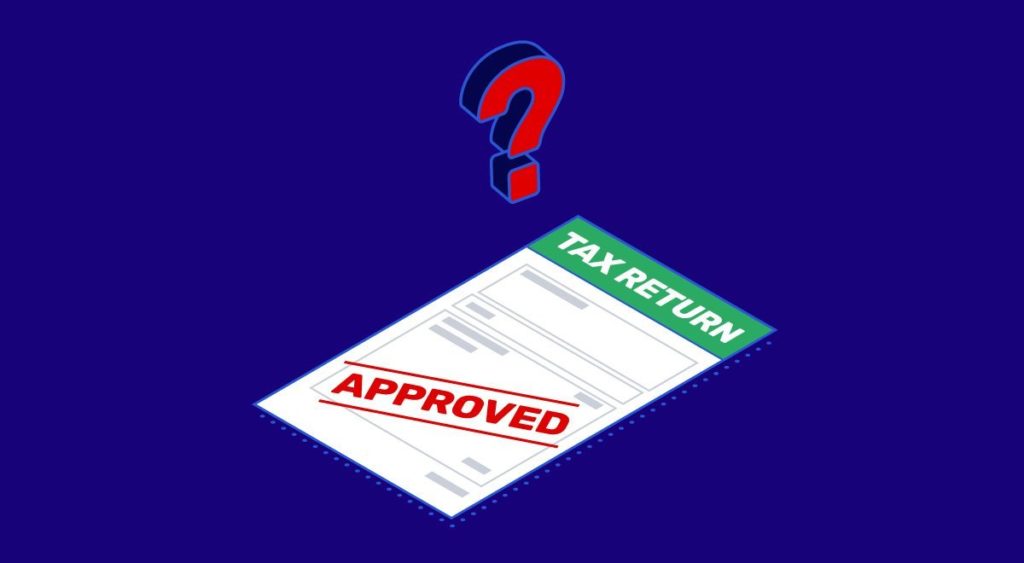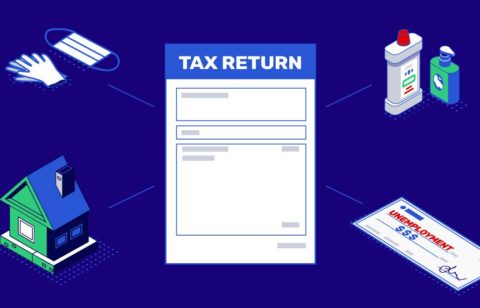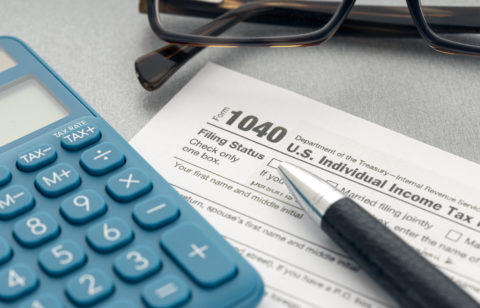While millions of people are still struggling with their Federal income tax paperwork and have not even set up an appointment with their accountant yet, millions more have already filed their tax returns and are waiting for what happens next. After filing their returns, many taxpayers check with their tax professionals or the IRS website on the status of their returns. When doing so, it’s common to receive a notice that a tax return has been accepted. However, despite receiving that notice, there’s often little other follow-up. Users typically don’t receive any refunds immediately after receiving this notification (if a refund is due), or further indication of what the IRS is doing with the return. If dealing with your tax return already raises your anxiety levels, sitting idle after your tax return has been accepted can be downright stressful, especially if you don’t know what that even means. My tax return was accepted; now what? Read on to discover what to expect.
What Does “Accepted” Mean?
When you receive a notification that your return has been accepted – whether from your tax professional, the software you used to file your own return, or by checking the IRS website – that’s good, if incomplete, news. A return that’s been “accepted” means that it passed an initial screening, which includes some very rudimentary checks. This can be the fact that no one else has filed a return under your Social Security Number or that no other red flags caused it to be rejected. Once your return has been “accepted,” its status will remain the same until it’s been “approved.” This indicates it’s been processed and that the IRS has approved the release of your refund.
Monitor Your Tax Return Status
Once you know that your return has been accepted, it’s just a matter of waiting. According to the IRS, it takes 21 days or less for the agency to process most tax returns. However, there are instances in which the agency may require more time to deal with an individual return. For instance, tax returns that have numerous errors or are incomplete may take longer to process. If the IRS suspects you were a victim of identity theft, or if you’ve applied for an earned income tax credit or an additional child tax credit, it could take longer to process the claim. Fortunately, if you’re expecting to get a refund, there’s a place on the internet you can go to track your return’s status. The IRS’ Where’s My Refund feature will show you when to expect your refund.
Pay Your Tax Bill
While millions of Americans get refunds each year, millions more don’t do so. This is especially true for businesses as well as people who are self-employed and don’t pay any withholding taxes. These people often underestimate the amount of taxes they owe or choose not to pay them at all until the end of the year, only to end up with a hefty tax bill when the deadline for filing taxes rolls around. Failing to file or pay your taxes on time could leave you saddled with penalty fees and additional scrutiny from the IRS, so make sure you get that check in the mail as soon as you can after filing your taxes. This year, the deadline for filing your income taxes with the Federal government is April 15, but there’s some talk about extending that date further into the summer, with a few states already extending it. So, make sure you pay attention to all news related to income tax filing as April approaches.
Organize Your Tax Paperwork
Once you’ve filed your return and are waiting for the IRS to process it, you should organize all your tax paperwork so you can access it easily later on. You may need it if you’re audited or if the IRS has any questions or issues about your return. You may also need your tax return for other purposes, such as if you’re applying for a mortgage or some other type of significant loan. While paper copies of your return are great, it also makes sense to digitize your return and keep it on hand on a computer or hard drive. Your tax preparation specialist may be able to help you with preparing a digital copy.
Make a Plan for Your Refund
If you’re expecting a refund this year, you should plan the best way to use it. With the economic effects of the COVID-19 pandemic ongoing across the country, take time to figure out the best way to leverage that refund to remain in a solid financial position for the remainder of 2021. If you’ve been putting off home repairs or improvements due to cash problems, getting your home back into top shape could be a great way to put your refund to work. Paying off your credit card or other debt balances is another great choice for spending your refund. Finally, it may make sense to start an emergency fund to be prepared for unexpected expenses that may rise up later in the year.
My Tax Return Was Accepted, So am I All Set?
What you do after you file your taxes is almost as important as all the preparations you do to be ready for tax day. So, don’t rest on your laurels after filing your taxes this year. Instead, stay focused on the status of your return, and be ready to put it to good use throughout the rest of 2021.





